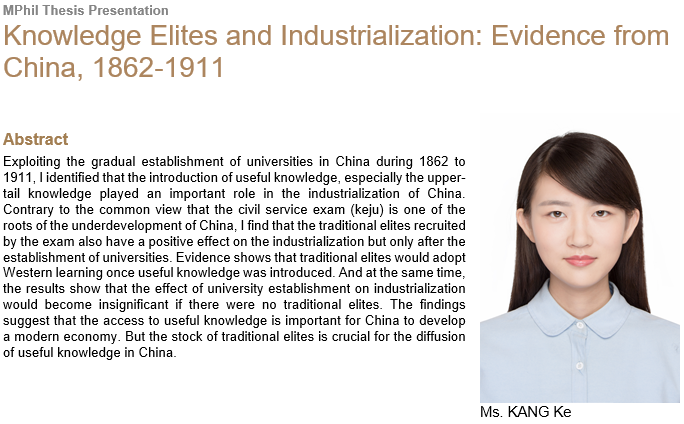Abstract
Exploiting the gradual establishment of universities in China during 1862 to 1911, I identified that the introduction of useful knowledge, especially the upper-tail knowledge played an important role in the industrialization of China. Contrary to the common view that the civil service exam (keju) is one of the roots of the underdevelopment of China, I find that the traditional elites recruited by the exam also have a positive effect on the industrialization but only after the establishment of universities. Evidence shows that traditional elites would adopt Western learning once useful knowledge was introduced. And at the same time, the results show that the effect of university establishment on industrialization would become insignificant if there were no traditional elites. The findings suggest that the access to useful knowledge is important for China to develop a modern economy. But the stock of traditional elites is crucial for the diffusion of useful knowledge in China.

